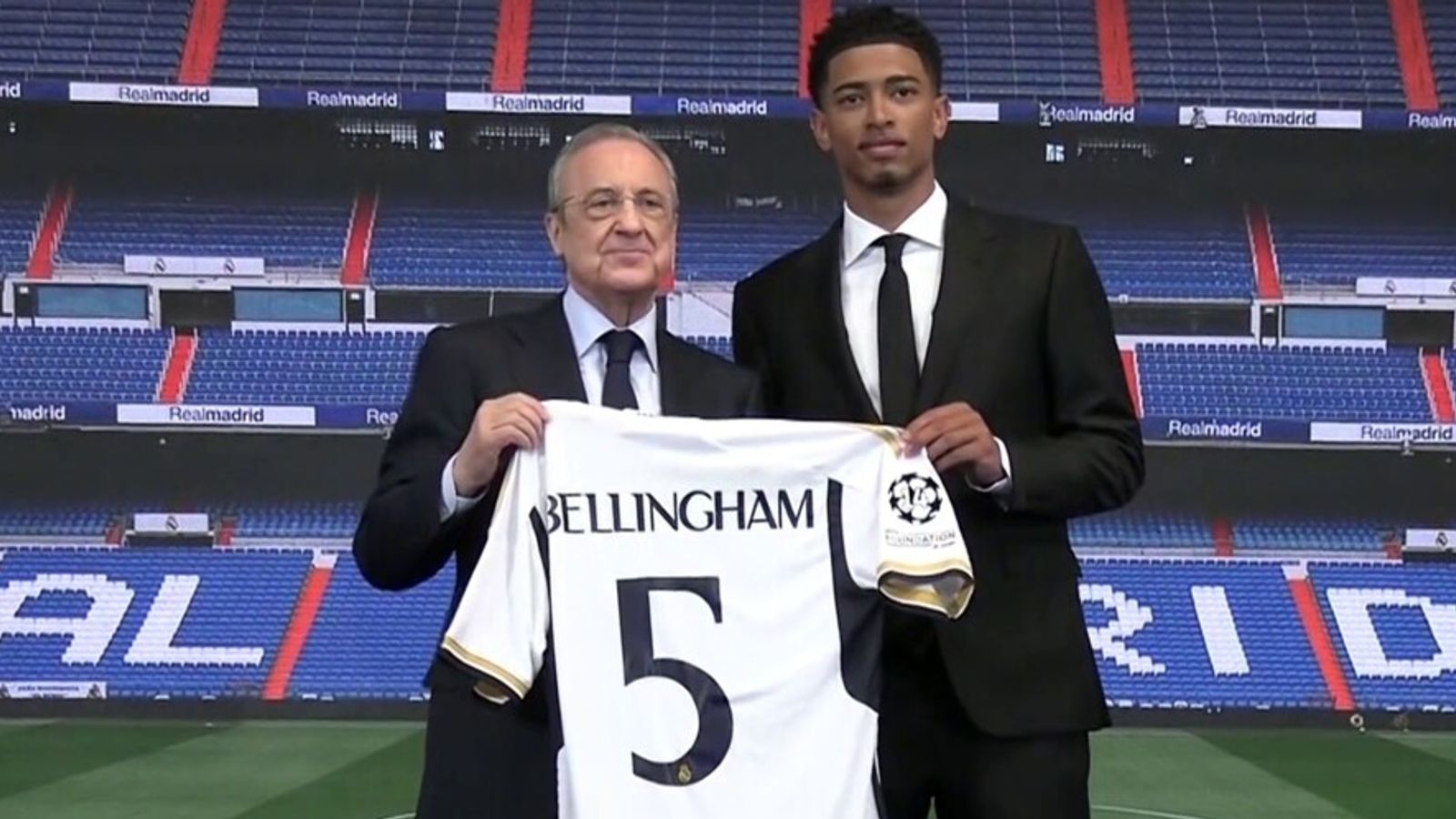
Controversial Red Card for Jude Bellingham as Real Madrid's Victory Snatched Away by Valencia

Real Madrid's Jude Bellingham faced a controversial red card after a last-minute goal was disallowed against Valencia, leading to a dramatic conclusion on Saturday's match.
Real Madrid player Jude Bellingham was red-carded when his injury-time goal against Valencia was disallowed last Saturday.
The 20-year-old Bellingham seemed to have secured the victory with a header in stoppage time at the Mestalla Stadium. However, the referee, Gil Manzano, had already ended the game just as the ball was being crossed.
Bellingham, along with his Real Madrid teammates, got upset with the referee after a controversial call. Unfortunately, the midfielder ended up receiving a red card as the game finished in a 2-2 draw.
Valencia took the lead in the first half thanks to a goal from Hugo Duro, who scored with a quick reaction header. Then, Roman Yaremchuk capitalized on a mistake from Dani Carvajal, intercepting a wayward back pass and extending Valencia's lead to 2-0, leaving the visiting team stunned.
Real Madrid managed to score a goal just before halftime thanks to Vinícius Jr. They kept up their momentum in the second half, looking to level the score.
Their efforts paid off in the 76th minute when Vinícius scored his ninth league goal of the season with a header from close range. This marked a positive comeback for the Brazilian player at the Mestalla, where he had faced racial abuse from fans the previous year.
He had celebrated his first goal by raising his fist into the air on what was his 250th appearance for Real Madrid.
Vinícius celebrates scoring against Valencia.
Vinícius celebrates scoring against Valencia.
David S. Bustamante/Soccrates/Getty Images
As the match was nearing its end, there was more excitement to come. A penalty for a challenge on Duro was initially awarded but was overturned after a video assistant referee review, depriving Valencia of a potential game-winning opportunity.
In the ninth minute of stoppage time, Brahim Díaz delivered a cross into the box that Bellingham headed into the net. Unfortunately, the referee had blown the whistle just moments before the cross, resulting in the goal being disallowed.
Chaotic scenes unfolded as Real’s players crowded around the referee. Bellingham, who was playing his first game since injuring his ankle last month, was then given a red card.
In the official referee report, Manzano clarified that he decided to show the red card to Bellingham because the player approached him aggressively, shouting repeatedly, "it’s a f**king goal!"
Carlo Ancelotti, the manager of Real, shared his frustration about the disallowed goal in a recent match. He mentioned that it was something he had never experienced before in his career.
Ancelotti highlighted that after the rebound, his team had possession, which made the situation even more unusual for him. He expressed his disappointment over the disallowed goal and also mentioned that they were unhappy about Bellingham's red card, as he did not say anything disrespectful.
Ancelotti added that his players were “upset and angry” with the decisions and “have to cool down a bit because the team is still seething.”
Bellingham's headed goal against Valencia was controversially disallowed.
Bellingham's headed goal against Valencia was controversially disallowed.
Pablo Morano/Reuters
The good news for Los Blancos is that they are still seven points clear at the top of LaLiga, though second-placed Girona could narrow the gap against Mallorca on Sunday.
Before the game, both teams honored the victims of last week's tragic fire in a Valenica apartment block. They observed a minute of silence and laid a wreath on the pitch.
Real next plays RB Leipzig in the Champions League on Wednesday, while Valencia returns to action in the league against Getafe next Saturday.
CNN’s Patrick Sung contributed reporting.
Editor's P/S:
The controversial disallowance of Jude Bellingham's goal and subsequent red card in Real Madrid's clash with Valencia has sparked a whirlwind of emotions. The incident highlights the fine line between passion and misconduct in competitive sports. While Bellingham's frustration is understandable, his aggressive approach towards the referee crossed a boundary, resulting in a justifiable punishment. However, the decision to end the game prematurely, denying Valencia a potential penalty, adds another layer of controversy to the situation. It raises questions about the role of technology in officiating and the balance between fairness and adherence to the letter of the law.
The incident serves as a reminder that while emotions run high in football, players must maintain composure and respect the authority of the referee. It also underscores the need for clear and consistent officiating, especially in crucial moments. The disallowed goal and red card have left a bitter taste in the mouths of both teams and raised questions about the integrity of the game. Ultimately, it is the responsibility of all involved to ensure that the passion and intensity of football do not overshadow the principles of fair play and sportsmanship.















